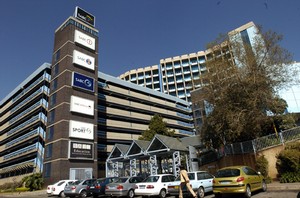Much merit in proposal to scrap TV licence fees
The Department of Communications’ proposal to scrap television licences and fund the SABC from the national fiscus is a welcome development. We believe that the time, energy and financial resources spent administering and enforcing the current system cannot be justified and that a direct charge to the taxpayer would be preferable, although the public broadcaster should still attempt to offset as much of its costs as possible from advertising revenue.
Further, if all funding for the SABC is to flow from government then it is imperative that its independence is guaranteed and that it does not become a post-1994 version of “His Master’s Voice”. The manner in which the SABC board is selected is one area that needs urgent attention as it is effectively in the hands of the ruling party. A new approach to the selection of the board should be written into the new legislation.
The whole notion of a public broadcaster must surely be that it presents the widest possible spectrum of opinion, particularly as far as politics is concerned, and not simply be a mouthpiece and part of a propaganda machine.
The proposed demise of television licences raises the question of whether it is not time for the whole issue of revenue collection to be examined critically and whether consideration should not be given to ending personal income tax and replacing it with VAT imposed on a sliding scale with luxury items taxed at the highest rate.
This would obviously require sophisticated systems to accommodate the different VAT rates that would possibly be imposed by a single enterprise. But once operative, would it not be a more efficient way to collect the revenue contribution required from individuals than the present system where revenue services face a serious challenge with enforcement.
It would also make tax avoidance considerably more difficult as the vendor would continue to serve as a collection agent, but on a much larger scale with revenue being collected quicker than is the case at present.
Given that basic foodstuffs would continue to be VAT-exempt and this could be extended if necessary, the poor should not be adversely affected but those more affluent would pay for the luxuries they desire.
Any change would obviously involve considerable research and investigation but we believe it would be worthwhile to at least explore this option.
Whatever emotion might be stirred by the announcement by Volkswagen of the end of South African production of the iconic Citi-Golf after 31 years, it will be tempered by the assurance that no jobs will be lost as a result.
At a time when the motor industry has experienced a sharp downturn in sales as a result of the economic recession and thousands of jobs have been lost, that must be good news.
Further, while VW has declined to reveal “what comes next” – and will only do so in March next year – that does signal the company’s commitment both to South Africa, the Eastern Cape and Nelson Mandela Bay, where the automotive industry is of critical importance to the provincial and the local economy.
While government is obviously reluctant to single out one economic sector for special treatment, and it would be wrong to suggest the industry has not benefited from the Motor Industry Development Plan given its strategic importance in one of the poorest provinces, a case can be made for special attention.
Specifically, assistance in achieving higher levels of local content would be extremely useful, not only because of cost issues, but also because of the investment such a programme attracts, the jobs it creates and skills that will be honed.
Sourced via timeslive.co.za







